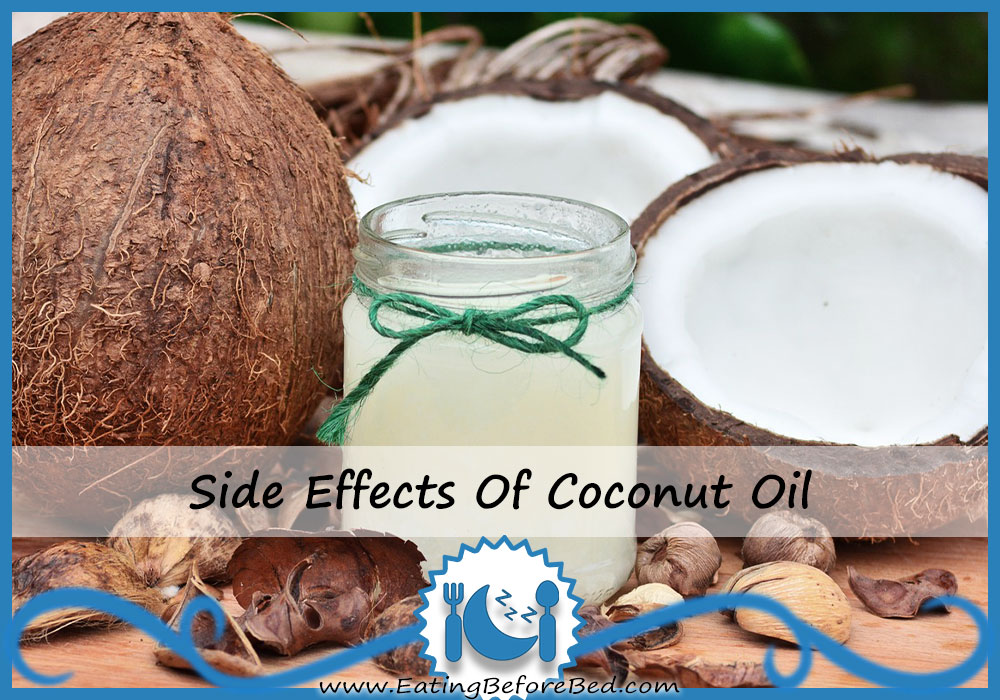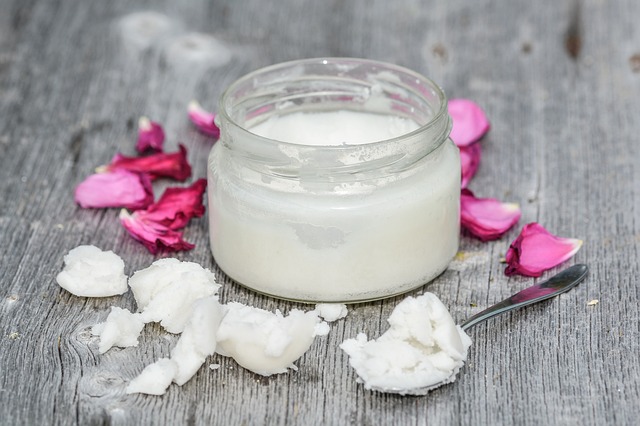Coconut oil, this white gold of the health world, has become very popular among people with its countless benefits, from skin and hair health to strengthening the immune system. But recently there have been whispers about the side effects of eating coconut oil on an empty stomach.

Drinking Coconut Oil
In this article, we will examine whether it is beneficial or harmful to drink coconut oil on an empty stomach. Stay with us to get to the hidden corners of this issue and answer your questions.
Coconut oil, rich in healthy fats:
Coconut oil is rich in medium-chain fatty acids (MCT), which are quickly absorbed by the body and used as an immediate energy source.
Side Effects Of Drinking Coconut Oil In Empty Stomach
Difficult digestion:
MCTs go directly to the liver where they are converted into ketones. Ketones can be difficult for the body to digest and process, especially in the morning on an empty stomach. This can lead to symptoms such as bloating, heartache, diarrhea and nausea.
Bile dysfunction:
Bile is a liquid produced by the liver and gallbladder that helps digest fats. Drinking coconut oil on an empty stomach can interfere with the secretion of bile and disrupt the digestion of fats.
Cholesterol increase:
Coconut oil is rich in saturated fat. Consuming too much saturated fat, especially on an empty stomach, can lead to elevated levels of bad cholesterol (LDL).
Interference with the absorption of nutrients:
Consuming coconut oil on an empty stomach can interfere with the absorption of certain nutrients such as fat-soluble vitamins (A, D, E, and K) and minerals.
Exacerbation of gastric acid reflux symptoms:
Coconut oil can relax the lower esophageal sphincter (LES) and allow stomach acid to back up into the esophagus. This can lead to symptoms such as heartburn and heartburn.
But wait! Do not despair!
You can still enjoy the benefits of coconut oil, you just need to choose the right time to consume it.
The best time to use coconut oil
- As breakfast: You can add coconut oil to your smoothies or oatmeal.
- Before exercise: Consuming coconut oil 30 to 60 minutes before exercise can act as a source of immediate energy.
- As a snack: you can eat a tablespoon of coconut oil with fruit or nuts.
- In cooking: use coconut oil instead of other oils in cooking.

Tips for safe use of coconut oil
- Start with a small amount and gradually increase your intake.
- Listen to your body and stop taking it if you experience symptoms such as bloating, heartburn, diarrhea, or nausea.
- If you suffer from certain diseases such as digestive, liver or gallbladder diseases, consult your doctor before using coconut oil.
Finally, remember that anything in excess is harmful.
Balanced and principled consumption of coconut oil can have many benefits for your health.
So, be careful and aware of its advantages and disadvantages, benefit from this white gold of the health world.
Benefits or harms of coconut oil for skin and hair
Coconut oil has many benefits for skin and hair due to its useful fatty acids, vitamin E and antioxidants.
Benefits for the skin:
- Strong moisturizer: due to its strong moisturizing properties, coconut oil can eliminate dryness of the skin and make it soft and supple.
- Anti-inflammatory: Coconut oil can help heal skin inflammations such as eczema, dermatitis, and acne.
- Antimicrobial: With its antimicrobial properties, coconut oil can help fight bacteria and fungi that cause pimples and acne.
- Anti-aging: The antioxidants in coconut oil can protect the skin from free radical damage and premature aging.
Read More: 20 Worst Fruits Not To Eat Before Bed At Night
Benefits for hair:
Hair Strengthener: Coconut oil can help strengthen hair and prevent hair loss.
Hair softener: Coconut oil can soften hair and prevent frizz.
Hair protection: Coconut oil can protect hair from environmental damage such as sunlight and air pollution.
But in addition to these benefits, you should pay attention to the possible harm of coconut oil for skin and hair:
- Being acne-causing: coconut oil can clog skin pores and cause acne in some people.
- Formation of gallstones: Excessive consumption of coconut oil can lead to formation of gallstones in susceptible people.
- Allergy: Some people may be allergic to coconut oil and experience symptoms such as itching, redness and swelling of the skin when using it.
Tips for using coconut oil for skin and hair:
- Before using coconut oil on your skin or hair, test it on a small area of your skin first to make sure you are not allergic to it.
- Use a small amount of coconut oil and massage it thoroughly into the skin or hair.
- After using coconut oil, wash your skin or hair with lukewarm water.
Finally, remember that coconut oil is a natural ingredient and may not work for everyone.
The best way to use coconut oil for skin and hair is to consult a skin and hair specialist.




